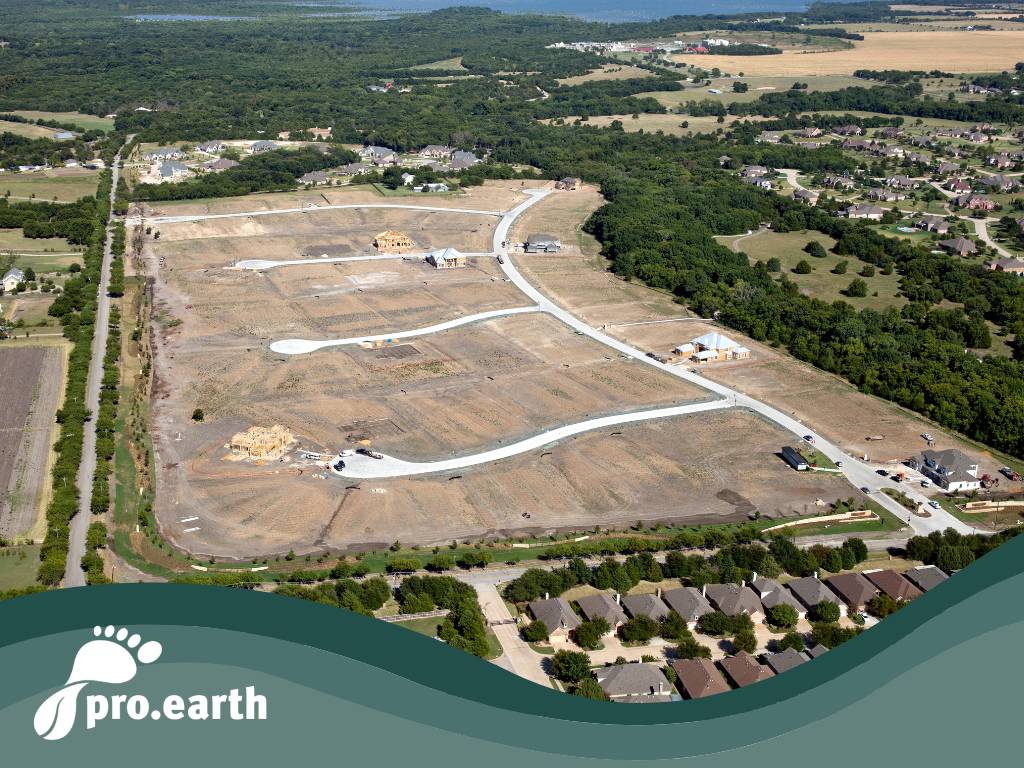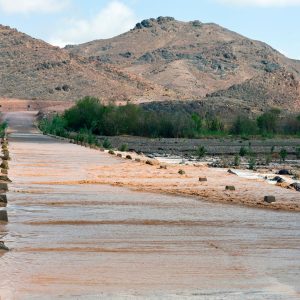Action against the immense soil sealing

The topic, which we already presented at the end of March, is hot. The Austrian NGO Allrise, which specializes in climate lawsuits (e.g. against the Brazilian ex-president Jair Bolsonaro), yesterday filed a state liability suit with the Constitutional Court against the Republic of Austria and the federal states of Lower Austria and Upper Austria for inadequate soil protection. Supported by climate researcher Prof. Helga Kromp-Kolb, Allrise justifies this with the individual damage suffered by the plaintiffs - financially, but also in terms of health.
Johannes Wesemann, initiator and founder of AllRise: " For decades, Austrian policy has failed to protect domestic soils and thus the climate, domestic food production and biodiversity. The European Commission has already pointed out the lack of measures to the Republic several times - so far without success. That is why we are now taking legal action." With its lawsuit, the NGO is pursuing the goal offorcing politicians to actively curb land consumption. If the state liability claim is upheld, the government will have to adapt the legal situation accordingly in order not to expose itself to further liability, writes Allrise.
https://news.pro.earth/2023/04/28/bodenversiegelung-eines-der-ganz-grossen-umweltprobleme/
"A fifth of our area has already been built on. That's twice the size of Vorarlberg. And Eisenstadt is added every year."
Johann Wesemann
This will cost us dearly
Allrise assumes that Austria will have to make payments of around four to nine billion euros by 2030 due to the purchase of emission certificates because too little is being done to protect the soil. Ultimately, all taxpayers will bear these costs. "Each of us has to contribute around one thousand euros on average per year to the fact that we have not taken sufficient measures to combat climate change," says lawyer Wolfram Proksch. These measures, as well as a comprehensive soil protection strategy, could significantly reduce expenditure.
Lack of implementation of EU directives
 The complaint is based in particular on the lack of implementation of various EU directives, such as the Water Framework Directive, the Nitrates Directive, the EIA Directive and the Habitats Directive. The fragmentation of responsibilities between federal, state and local authorities and the associated lack of a national soil protection strategy are also criticized:
The complaint is based in particular on the lack of implementation of various EU directives, such as the Water Framework Directive, the Nitrates Directive, the EIA Directive and the Habitats Directive. The fragmentation of responsibilities between federal, state and local authorities and the associated lack of a national soil protection strategy are also criticized:
"The non-implementation of the aforementioned directives and the lack of coordination at a federal level has led and continues to lead to new approvals for construction projects and excessive land consumption ," explains Proksch, who formulated the complaint together with his colleague Theresa Stachowitz. "There area number of current examples that would simply not be approvable if the federal and state governments were to adhere to EU regulations. Thecombination of aconfusinglegal basis in connection with the lack of public access to environmental information has alreadycaused damagetothe individual."
Image ©️Allrise 2023
There are enough proposed solutions
On the website www.bodenverbrauch.org, the Austrian NGO presents solutions and explains that there is a lack of political will to implement them.
- Setting settlement boundaries in regional planning
- Net zero land take: Every new zoning must be accompanied by a rezoning to grassland
- Binding soil protection strategy
- Adaptation of spatial planning
The WWF, which is also working intensively on this topic, has defined the following 12 measures for soil protection:
- Binding upper limit for land consumption
- Obligation to monitor at municipal level
- Soil sealing as a factor in environmental impact assessments
- A mandatory land use strategy for municipalities
- Obligation of the state governments to set guidelines for the municipalities in supra-local spatial planning
- Restricting the rezoning of building land
- Building land mobilization through temporary dedication of existing building land and re-dedication to grassland after a period of time has expired
- Boosting the use of vacancies
- Adapt building regulations accordingly, such as a reduction in parking spaces
- Sustainable housing promotion such as incentives for land-saving development
- Adjustment of financial equalization so that economical land use is rewarded
- Sealing levy for newly sealed floors
Our pro.earth. conclusion: We very much hope that this environmental problem will now be tackled seriously as a result of the pressure from the lawsuit. After all, healthy soil is one of the most important prerequisites for our survival. And to conclude with Prof. Helga Kromp-Kolb:
"Earth is not a pile of dirt, but an ecosystem full of life. The rich biodiversity of the soil is essential for our survival - as the basis on which our food grows, as a reservoir of water and carbon, as a cooling factor in climate change, etc. Soil fulfills so many functions that its excessive destruction calls into question the provision of basic needs."
Further links:
https://news.pro.earth/2023/04/28/bodenversiegelung-eines-der-ganz-grossen-umweltprobleme/






